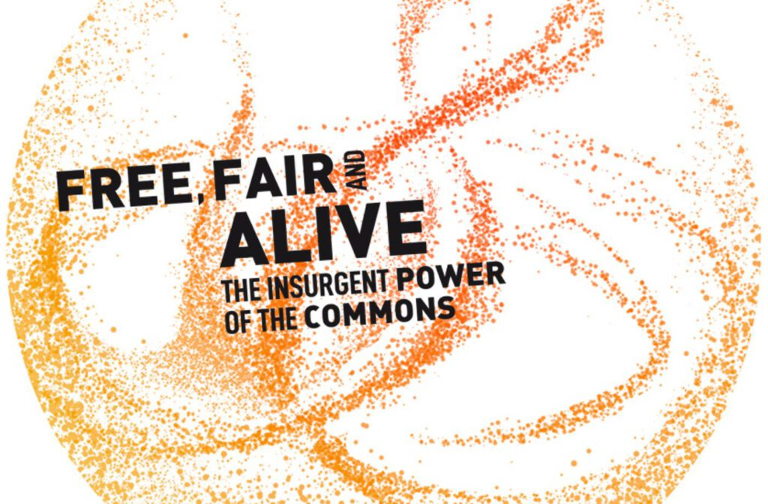Silke Helfrich completed her studies in adult education and Romance languages as well as sociology with a focus on economics. She works as a freelance author, researcher and widely sought-after speaker. Silke is also cofounder of the Commons-Institut e.V. and the Commons Strategies Group as well as co-initiator of the Netzwerk Ökonomischer Wandel (NOW). Her most recent publication, co-written with David Bollier, is the book Free, Fair and Alive. The Insurgent Power of the Commons, transcript, 2019.
Caring and Thriving: The Social Security Engendered by Commoning
So there is a direct link between economic crises and the crisis of our social security system. This should scare us all. We know there will be another crisis.
October 19, 2020
Growing the Commonsverse: Rethinking Property
Property law as it is today systemically privileges the individual versus the collective, self-serving control over relationships, and exchange value over intrinsic or use value.
August 27, 2020
How the Coronavirus is Forcing us to Think beyond Market and State
If we focus only on keeping distance but not at the same time on closeness – on taking care of the many relationships that support us – then we lose sight of important courses of action as well as the people needed to undertake them.
August 6, 2020
Growing the Commonsverse
But as capitalism teeters under the weight of its own contradictions, leading to such existential crises as climate breakdown, economic inequality, and violent nationalism, an obvious question on the lips of most people is, how can the Commonsverse grow larger and transform the political economy and culture?
July 27, 2020
Provisioning Through Commons
Trained to see the dismemberment of complex production processes as efficient and natural, and its segregation from consumption as a core premise of “the economy,” economists tend to overlook a more elegant, practical approach to provisioning — commoning.
May 8, 2020
Peer Governance Through Commoning
Commoning may be rooted in a variety of social outlooks and behaviors, as we saw in Chapter Four. But can it govern? Can it do so better than existing governments? Can it coordinate more effectively and better than the market? These are large questions.
February 26, 2020





